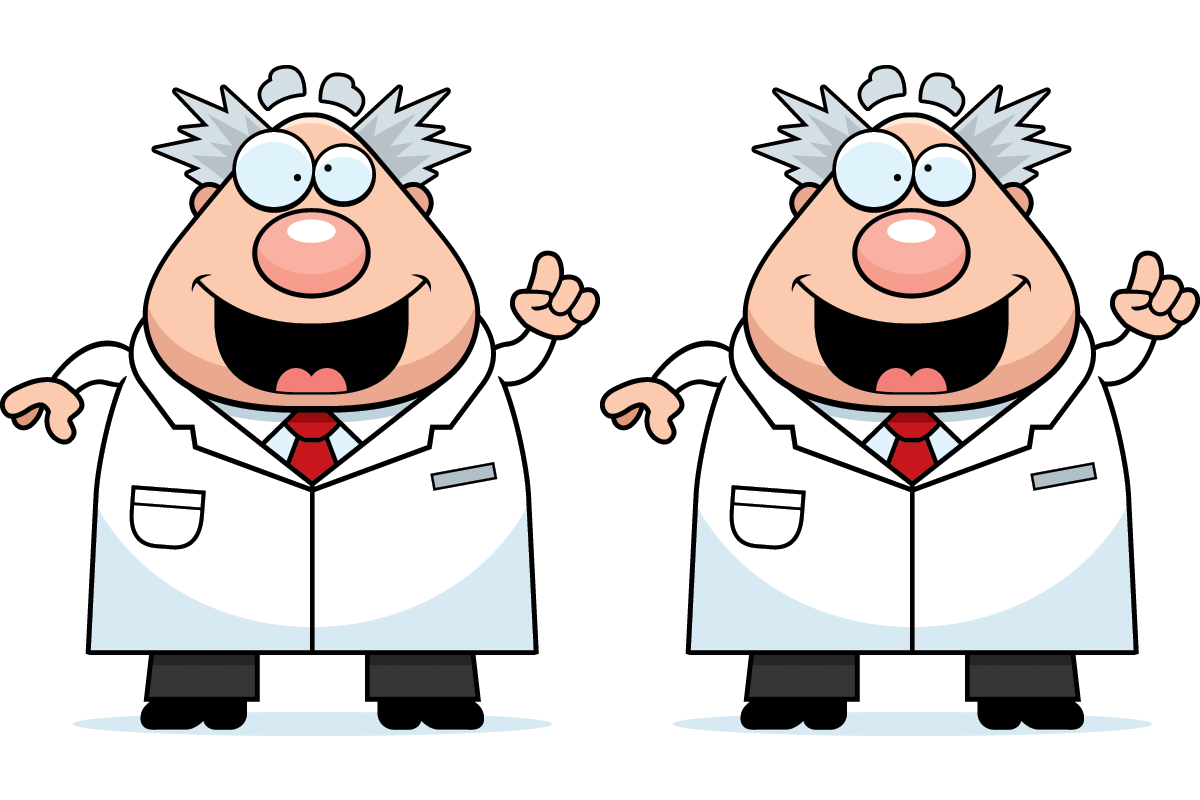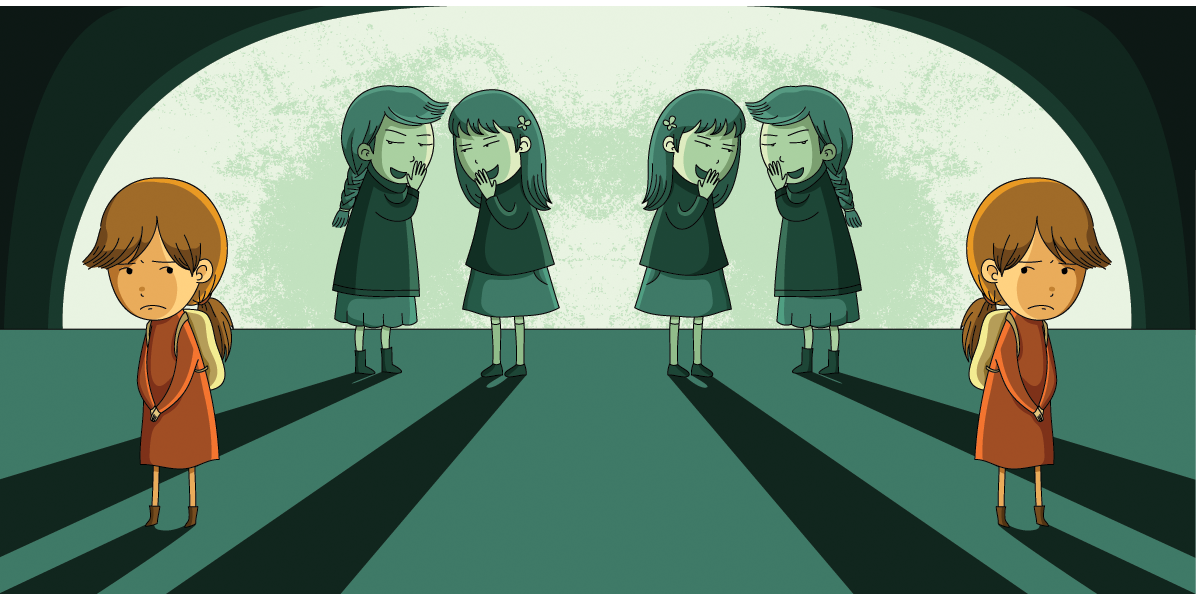Who Are You?

How would you answer that question? Most of us answer it by saying what we do, or what we have. By our jobs, by our accomplishments, by our families, by our connections. All of these are things outside of us. If I call myself a writer, it’s really a description of what I do. Writers write. If you are an actor, it’s what you do. You refer to yourself as a father, a wife, a son, a daughter it’s another way of describing ourselves by referencing things outside ourselves.
Impossible Question
The point of this post is to demonstrate precisely why this is an impossible question. This perhaps is the reason we instinctively define ourselves by our actions, by our relationships, by our accomplishments. These are things that are outside ourselves that are very easy to define. By the time you finish reading this, you’ll realize that defining yourself from the inside out is the quickest way to become trapped in a hallucination of your own making.
Post Structure
We’ll first cover some famous, and very disturbing, experiments in the world of psychology. We’ll forget about ourselves for a moment, and take an objective look at humans as we can. Then we will see purely from this objective description of humans that looking at ourselves from inside our own minds is nearly impossible. That coming up with a definition of “who I am” (as you read that sentence about yourself) without specifically referencing anything external is an impossible question to answer.
Why So Confusing?
For one, it’s fun to think about these things. And two, if you’re at a party and you want to spin your friends brains around in circles, bring up some of the topics in this post. This are the kind of philosophical questions which are interesting to contemplate simply because they have no answers.
Milgram Experiment

The reasons for this experiment, which was done back in the sixties, was partially because nobody really understood why the people of Germany could go along with the lunatic ideas of a guy like Hitler. The question was why do people follow authority so blindly? So they set up this study to see.
Study Setup
As most studies, they had to do a study within a study to elicit the natural response from the real test subject. There was a guy, A in a lab coat. Then there was a guy B, sitting in front of a pane of glass. On the other side of the glass was guy C. Person B was told that the study was a new kind of memory technique. That that person A would ask person C questions, and if they (person C) got them wrong, person B would send person C an electric shock.
In reality, the shocks weren’t real. They were fake. The real study was just to see how high person B would shock person C, when the authority figure, person A, told them to. Before the study started, they all expected that people wouldn’t shock much more if the guy behind the glass started to complain. They were wrong. Very wrong.
Enough To Kill
In reality, person B just kept right on shocking person C, even though person C sometimes went as far as pretending to have a heart attack. Even when person C was begging for person B to stop. But in most cases, person B looked over at person A (the authority) who simply nodded and said everything was fine.
First Law Of Human Behavior
Ok, so this isn’t really a law. Just the first piece of this puzzle. It seems that us humans will do pretty much anything, even shock a guy to death, so long as the guy in charge says it’s OK. The funny thing is most of us would claim “we” would never do that. Yet in that study, the majority of people gave person C enough electricity to do serious harm, had they been real.
Asch Experiment

They have a guy sitting in a room. They show him two cards. On one card, is a single line. On the other card is a bunch of lines, all parallel, but of different lengths. The job is to choose the line from the card on the right, with the same length as the single line on the card on the left. So far so good, right? A three year old could do it.
Enter The Social Peers
Only when they put more people in the room, things get a little fuzzy. Same guy as before, only now there’s a few people in the room. But all the other people are secretly part of the experiment. They do the same thing, only all the other people purposely choose the wrong answer. The answer that before was so easy a two year old could do it. But this time, when everybody else is purposely choosing the wrong answer, the actual test subject chooses the wrong answer as well.
After the study, they talked to the test subjects who were swayed by their social crowd. The answers they gave as to why they “chose wrong” were all over the place. Self doubt was increased. It was better to be part of the crowd that be right. It would seem that they test subject didn’t really “believe” that the wrong line was actually the same length, but the desire to “fit in” was stronger than the desire to “be right.”
Second Piece Of The Jigsaw Puzzle
So far so good? We humans will do things we’d never otherwise do so long as an authority figure tells us it’s OK. And when we are in a crowd, it is hard to do something that will go against the crowd. So much for free will! But it gets worse!
Stanford Prison Experiment

A professor wanted to put people in a pretend prison to see what would happen. He chose several graduate students, all who knew the full extent of the experiment. The previous two experiments (Asch and Milgram) required trickery to see how people would behave. Meaning they had to kind of tweak the environment just right to get the natural behavior..
But in the Sanford Prison experiment, everybody knew what was what going in. They knew they would be split in half according to a random draw. Half would become prisoners, half would become guards. The experiment would last for a week. They were all told that they could leave whenever they wanted. At first, it sounded fun. An interesting way to spend a week.
Fun At First
At first, they just goofed around. They were all friends, or at least graduate students in the same program, after all. But after a couple days, something sinister started happening. The guards pretending to be guards actually felt like they should act like guards. And they did. Soon they demanded the prisoners be obedient. Then they did everything that evil guards do to de-humanize the prisoners.
They called them only by number. They punished them for disobedience. The professor kept checking up on them, and thought everything was cool. But everything wasn’t cool. One prisoner ended up getting locked in a closet. The guards took shifts pounding on the door. The student, (whom now everybody believed was a prisoner, with only a number and no name) was begging to be let out.
He was told he could leave at any time. But the professor checked, said everything was OK, and the experiment could continue.(With the guy still begging to be let out and more or less tortured according to modern standards).
Even the professor’s colleagues, other professors, came and checked everything out, and said it was OK. The poor guy in the closet had a nervous breakdown, yet the experiment continued. This wasn’t a real prisoner. He wasn’t a prisoner of war, he hadn’t committed a crime. He was a student that had volunteered for an experiment, and had been promised he could leave at any time. Now he was having a nervous breakdown and trapped in some kind of hell.
Final Straw

The guards were getting worse and worse. The prisoners were getting more and more terrified. The professor, and all of his professor buddies, thought everything was fine. Luckily, the professor’s girlfriend still had some sanity, and demanded that he stop the experiment. Only after they stopped it and started picking up the pieces, did the professor realize he himself had been sucked in, taking on his role of torturer in chief.
There’s been plenty of movies made about this experiment (here and here), as it shows a very insidious part of human nature that lurks just before the surface. Otherwise normal people, can quickly turn on each other with extreme viciousness under the right circumstances.
Third Piece Of The Puzzle
It seems we humans will conform with whatever people expect us to conform to. Based on only these three puzzle pieces, it seems we humans are hopeless and simply cannot think for ourselves if there is any conscious attempt to mold our behavior. Even if there isn’t, we are always in groups, crowds, and therefore (due to the Asch experiment) we will go along with the crowd, even if on the inside we think it’s not such a great idea.
If the crowd starts to get more and more evil? It seems, due to the Stanford Prison Experiment, we’ll roll right along with them. Nazi Germany is starting to make more sense. So are things like the Rwandan Genocide and all other mass murders. When all your buddies start killing, and the leaders are saying it’s OK to start killing, then kill we will.
Memory Experiment
Several studies have been done (and any of us only need to recall how hard it is to study and remember anything) on how weak human memory is. For example, a group of students were watching a professor lecture. A “thief” ran in and stole a bag off the desk. Later, the description of what this “thief” looked like were all over the place. Nobody could agree on even the basic things (height, facial hair, clothing, ethnicity) other than gender.
What’s Your GPA?
Unless you are one of the very rare and very lucky (perhaps) people who never need to study, we all have the common experiencing of getting less than a perfect score on a test. When teachers tell us precisely what to study, and give us time to study, we still get B’s and C’s (or even worse, ahem…)
Let’s Describe Us Humans Then
So, suppose we are some aliens trying study humans so we can give an accurate report when we go back to whatever planet we are from. Based only on the studies talked about here, how would you describe human? It seems that we are very easy to manipulate. We are very obedient to authority and our social reference group. It’s very hard for us to remember things, even when we try.
Who Are You?

Consider that who you are, from an internal viewpoint, is an impossible question to answer. All of your memories are sketchy at best. All the things you’ve done have likely been done not from your own choice and your own will, but because of your social reference group, and whatever authority figures are recognized by that social reference group.
Are We Even Individuals?
The cornerstone of western society, and western religion is the sanctity of the individual. Even the heart of religion holds the idea that we are, at our core, free individuals with free will. But is our will really free? What clothes are you wearing now? Why did you choose them when you bought them? If you spent any time imagining how others might judge you based on those clothes, was it really your choice?
Social Entities
Nearly everything we do includes a brief idea, even if it’s purely consciously, of how other people will think of us. When you want to walk across the room to talk to somebody, we are all hampered by the worry of what people will think. We are terrified of speaking in public because of what people might think.
Incapable Of Surviving Alone

The worst punishment they can give somebody is solitary confinement. Experiments done with chimps show that when they grow up without constant contact with others, they are severely crippled emotionally. We humans not only crave human contact and communication but we depend on it.
Decline Of Technology
For any society to have advanced technology, they need a certain number of people. Below the minimum number of people required, the technology is soon forgotten. The ruins in the jungles of Central and South America are a testament to this. Once large societies maintained complex economic and agricultural systems. But once the population declined below a certain number, the technology was lost, and life reverted to primitive forms.
Is, “Who Are You” Appropriate?
Suppose this isn’t the right question. We are, and we do. We can describe what we do. We can describe the structure of our bodies. But who is that “I” inside that is always perceiving? That “I” that is so easily influenced by others, and is so poor at remembering previous actions?
What Are We?
If we can answer this, then maybe we’ll have a better idea of what to do next. Suppose you and your friend were shopping, and for some strange reason you thought loaves of bread were really boat anchors. So you bought a couple, and went fishing. Then you tied a rope around some loaves of bread and tossed them in the water, thinking they would keep you from drifting.
Improper Definition Leads To Improper Use
But since you poorly defined the loaves of bread (as boat anchors) when you used them as boat anchors, you failed miserably. So when it comes to define who we are, we’d better be careful. So, what are we?
Are We Obedient Slaves?

This is very often an adequate definition. Most of us do things because we don’t want to, only because we are worried we might get into trouble. Or we are worried about becoming outcasts if we don’t go along with our social group. Since this isn’t a very nice label, let’s go up a meta level. What do slaves do? They do what they are told. But what is a meta level of this?
We Are Outcome Generators
Suppose our job as humans is to achieve outcomes. Consider everything you do, and consider it as an outcome that is being generated. This seems to fit. Even if you are choosing the wrong line length, as in the Asch experiment, you are still generating an outcome. You are told to choose the line that matches, so you are complying with the request. But you also want to match your social peers, so you steer how you achieve the outcome in that direction.
Whose Outcome Are We Generating?
It seems that most of the time, we are generating outcomes that are not entirely chosen by us. Suppose you are sitting in class, staring out the window, and the teacher calls your name. She’s looking at you. Everybody else is looking at you. You suddenly have a need that didn’t exist before. To get everybody’s attention off you. If you tried to continue to stare out the window as if nothing had changed, it would be very difficult. Most of us, in that situation, would be compelled to satisfy that new desire, to get all the attention off us.
Or if you happen to be a good student who enjoys answering questions correctly, you might see this as an opportunity, as a chance to show off your knowledge. But in both cases, the desire (to either get rid of the unwanted attention as quickly as possible to demonstrate your knowledge) came from somebody other than you.
Constant Flow Of States
Consider that we are entities, and are constantly flowing through time. If we don’t anything, then situations will arise that demand our attention. Or we can put ourselves in situations so that we have a certain degree of control over how these situations come up and how we can satisfy any impending needs. Most people shuffle through life, happy to stay out of trouble, and willing to do what they are told to achieve this.
Whose Needs Am I Satisfying?
Perhaps this is the most important question. We can imagine that answer can be in three broad categories. We are satisfying our own needs. We are satisfying the specific needs of somebody else, or we are satisfying not our needs, but also not another’s. They are just general needs that seem “out there” in that they are not chosen by us, but they are not really chosen by any specific entity.
Hunters
Consider ancient hunter gatherers. They were nomadic, following the animals that they hunted. When they decided to follow them East, whose idea was this? Nobody would disagree, since that’s where the animals were. No one person chose this direction. At the same time, nobody felt any ownership of this choice. It was just there. Not put by anybody, but not disagreed with by anybody.
Human Definition Suggestion
Consider that a useful description of us humans are “need satisfiers.” Some needs are purely ours. Some are purely somebody else’s. Some are just kind of there. We didn’t choose them, nobody chose them, and we realize we just kind of have to do something to satisfy that need.
Goal Of Life Suggestion
Many wonder what the “meaning” of life is. Some people allow others to choose their meaning for them. For ancient hunters, the “meaning” of their life was driven by their instincts and the migration patterns of the animals they hunted. Consider that the meaning of your life is always up for grabs. That many others in this world will very much like to choose your meaning for you.
What Do You Want?

This is another question to always contemplate. We all have twenty four hours a day. We all have a certain amount of skills and abilities. We must use these skills and abilities to interact with the world to get our needs met. Sometimes we get what we want in exchange for helping somebody else get what they want.
Choose Your Direction
Where are you going? Where have you been? Perhaps these are two much more important questions than who you are. As you consider this two questions now, and allow honest answers to percolate up through your being, do you like the answers? Would you like to change them?
Gain Control Of Your Future
Consider that this is the closest to a real “meaning of life.” To be able to control your own future as much as possible. To live for your needs, and the needs of those close to you. Not faceless authority figures or the imaginary people that make up a large and ever-changing social reference group. How, exactly do you do that? This, Dear Reader, is hopefully a question you’ll be asking yourself every day for the rest of your life. How to best gain control of your own future. If you don’t, you can be sure somebody, (or some thing) will.
Learn More

Mind Persuasion has plenty of books and courses all designed with the same purpose in mind: To help you get more out of life with less effort.
Mind Persuasion Books
Mind Persuasion Courses
Sources
Asch Experiment
Milgram Experiment
Stanford Prison Experiment